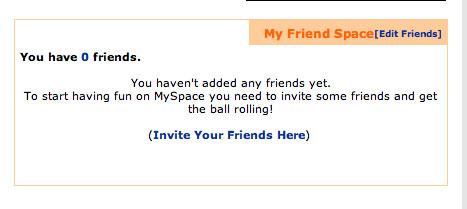Hindsight, as the man said, is the only exact science. I was thinking of that while I watched the two-part TV drama, The Path to 9/11 which was screened by BBC2 on September 10 and 11. It was a gripping production in which Harvey Keitel played John P. O’Neill, the FBI counter-terrorism chief who was on the track of Bin Laden and was, ironically, killed in the attack on the Twin Towers. The film-makers came clean on the fact that the production was a dramatisation of a real-life story, and that it had involved “time compression”, but also claimed that it had been extensively informed by the findings of the 9/11 Commission. The implicit message was: “We have to declare that this is fiction, but really it’s very heavily rooted in fact”.
The Commission’s report revealed that there had been a great deal of scattered knowledge in the US intelligence and law-enforcement communities about the activities of Al-Qaeda in the years running up to 9/11, but that a variety of factors — including inter-Agency rivalry — had prevented all these scattered ‘dots’ from being ‘joined up’. In fact the Report revealed an astonishing number of unjoined dots. The film then took a selection of these dots and wove a compelling narrative from joining them up. It tells a story of a group of dedicated public officials, led by O’Neill, who knew what Bin Laden & Co were up to and wanted to stop them, but were prevented from doing so by a variety of factors — including bureaucratic turf wars, but also (interestingly) the Clinton Administration’s caution and apparently over-zealous adherence to the rules of international law. (There were also hints here and there in the narrative that Clinton’s difficulties with Monica Lewinsky had had an enervating impact on the drive to counter Al-Queda.)
As I watched the story unfold, the hidden message became unmistakeable: the US had been endangered by three factors: inefficient intelligence and law enforcement efforts; respect for national and international law; and a Democratic president. The film was thus, in effect, setting out a justification for everything the Bush regime later implemented.
It doesn’t take a rocket scientist to smell a rat here. As the Washington Post put it:
According to the movie, Osama bin Laden — now the most wanted man in the world and a terrorist whose role in the 9/11 atrocity is not in doubt — was virtually within the grasp of U.S. intelligence operatives twice during the ’90s, after the 1993 attack on the World Trade Center. Islamic extremists left a truck bomb in the center’s underground parking garage — hoping, the film says, that the blast would knock one tower off its base and into the other.
Weak-kneed bureaucrats declined to act upon the opportunities to seize or kill bin Laden, the film also says. But the docudrama doesn’t stop at criticizing generic bureaucrats — which would at least have helped sustain a nonpartisan aura — and aims arts specifically and repeatedly at Albright, Berger, then-CIA chief George Tenet and others in the Clinton administration, most of them made to seem either shortsighted or spineless.
Clinton himself is libeled through abusive editing. A first-class U.S. operative played by Donnie Wahlberg argues the case for getting bin Laden while the al-Qaeda leader is openly in view in some sort of compound in Afghanistan. CIA officials haggle over minor details, such as the budget for the operation. The film’s director, David L. Cunningham, then cuts abruptly to a TV image of Clinton making his infamous “I did not have sexual relations with that woman” remark with regard to Monica Lewinsky. The impression given is that Clinton was spending time on his sex life while terrorists were gaining ground and planning a nightmare.
It would have made as much sense, and perhaps more, to cut instead to stock footage of a smirking Kenneth Starr, the reckless Republican prosecutor largely responsible for distracting not just the president but the entire nation with the scandal…
A little digging was all that was required to show that the film’s subliminal message owed a great deal to its provenance. Here’s Max Blumenthal on the background to the production:
“The Path to 9/11” is produced and promoted by a well-honed propaganda operation consisting of a network of little-known right-wingers working from within Hollywood to counter its supposedly liberal bias. This is the network within the ABC network. Its godfather is far right activist David Horowitz, who has worked for more than a decade to establish a right-wing presence in Hollywood and to discredit mainstream film and TV production. On this project, he is working with a secretive evangelical religious right group founded by The Path to 9/11’s director David Cunningham that proclaims its goal to “transform Hollywood” in line with its messianic vision.
Before The Path to 9/11 entered the production stage, Disney/ABC contracted David Cunningham as the film’s director. Cunningham is no ordinary Hollywood journeyman. He is in fact the son of Loren Cunningham, founder of the right-wing evangelical group Youth With A Mission (YWAM). The young Cunningham helped found an auxiliary of his father’s group called The Film Institute (TFI), which, according to its mission statement, is “dedicated to a Godly transformation and revolution TO and THROUGH the Film and Televisionindustry.” As part of TFI’s long-term strategy, Cunningham helped place interns from Youth With A Mission’s in film industry jobs “so that they can begin to impact and transform Hollywood from the inside out,” according to a YWAM report…
An interesting question — as yet unanswered — is how the BBC came to screen such a farrago of misrepresentation.


